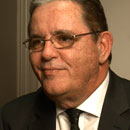A new study from J.D. Power has found that the overall hotel guest satisfaction score in the US has risen to a record high of 804 out of 1000 in 2015.
It is a different story in the UK. A survey by Hotel Info looked at guest satisfaction scores in Europe. The UK only scored 7.39 out of 10, which put them second from bottom in the list and far behind the top ranked Slovakia, which had an impressive score of 8.22.
So what makes the difference in these scores, and how important is guest satisfaction anyway? Our experts discuss how to ensure guests have what they want:
J.D. Power’s 2015 North America Hotel Guest Satisfaction Index Study is in its 19th year and this is the first time the overall score has passed the 800 point, having risen 20 points from 2014. The factors covered in the score are; the reservation, check-in/check-out, guest room, food and beverage, hotel services, hotel facilities, and cost and fees.
The study suggests that there are two very important elements in achieving good scores. One is that staff anticipate needs and offer friendly service. The second is that the overall operation meets the guest’s expectations of that hotel. The expectation element will vary depending on the branding of the hotel, whether it is a luxury or a budget hotel, and the cost. Guests expect to get what they pay for, and seek out good value.
The survey put The Ritz-Carlton top of the luxury segment, and put Microtel Inn & Suites by Wyndham top of the Economy Segment in the US.
Hotel Info’s survey of six million guest evaluations compared guest satisfaction in cities in the UK. Sheffield had the highest score in the UK at 8.03 whereas the UK’s biggest market and capital city, London, lagged behind with a score of 7.12.
If you’ve been sent to this page and you’re not yet on the circulation list to receive these regular briefings and you would like to sign up, you can do so here. It’s free.
Video clips produced by yBC for the Hospitality Channel, including interview from industry conferences such as the IHIF conference as well as specific Hospitality Channel shoots.









